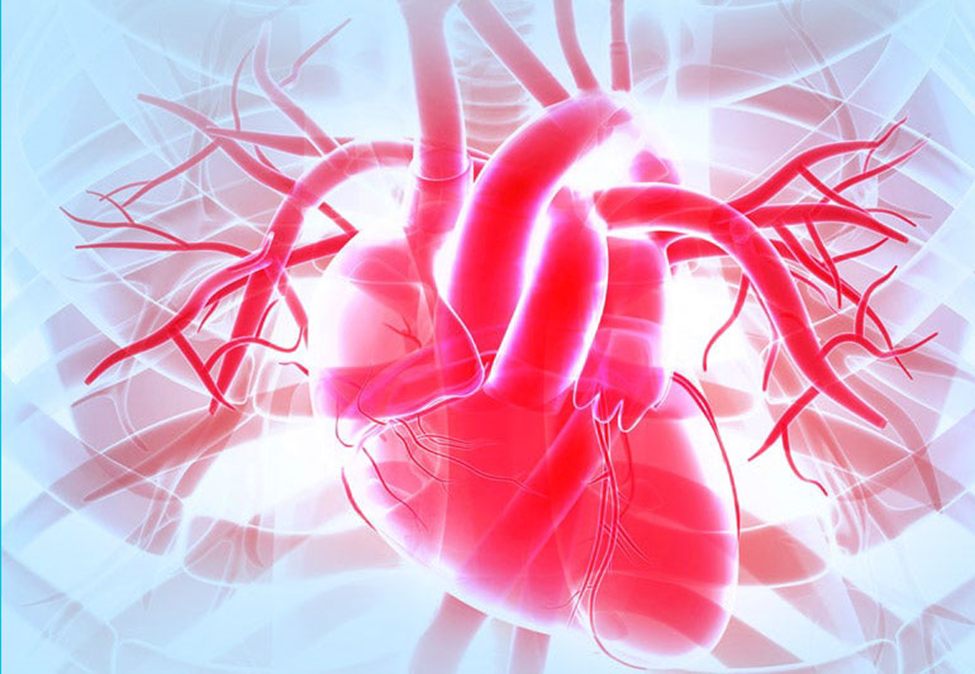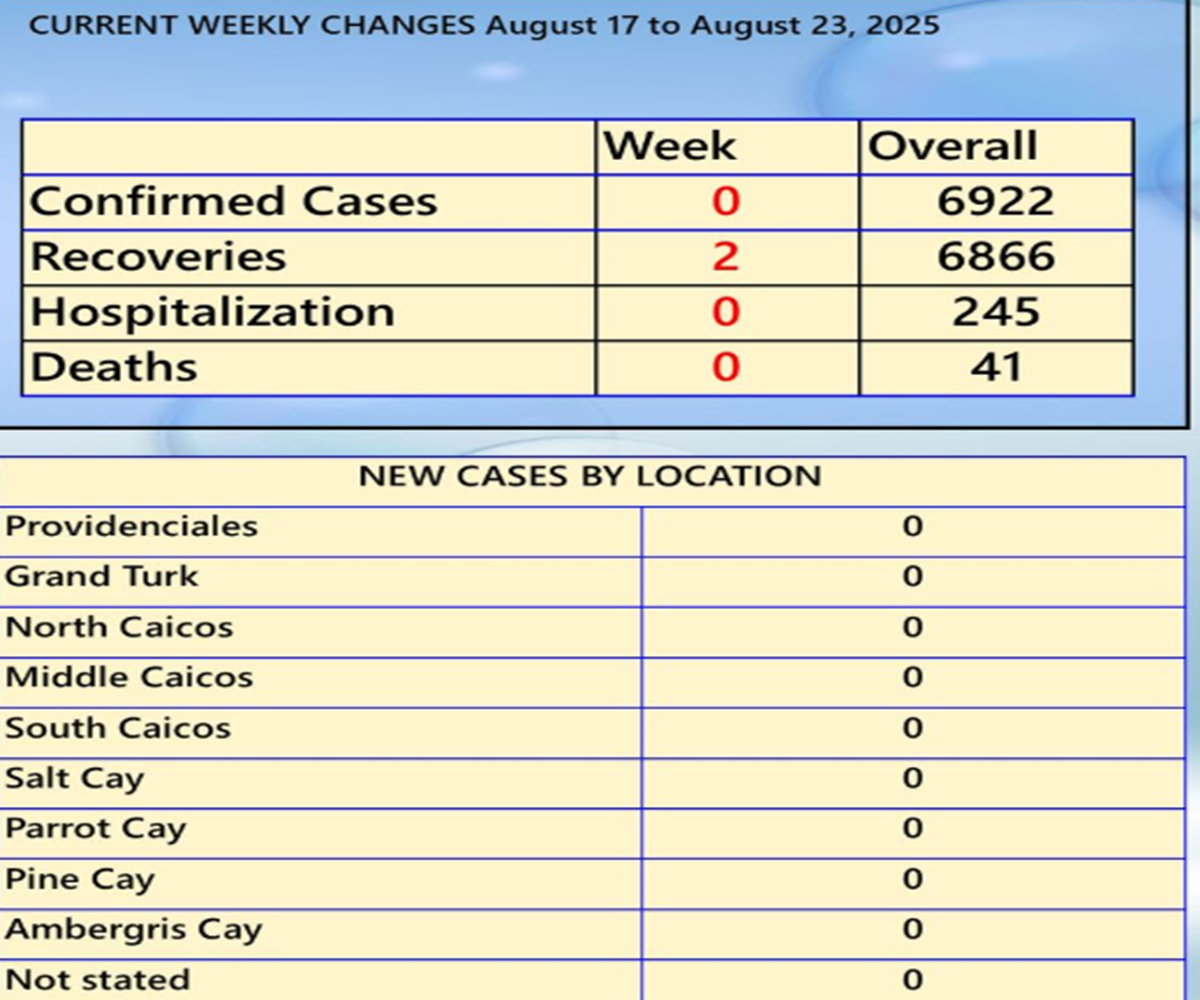Deandrea Hamilton | Editor
Turks and Caicos, September 6, 2025 – COVID-19 fears in the Turks and Caicos Islands that once had residents on edge are now giving way to a sense of relief. The Ministry of Health and Human Services reports a dramatic reversal: from dozens of new cases in July to zero cases and zero hospitalizations today.
Between August 17 and 23, 2025, officials confirmed no new cases, no hospitalizations, and no new deaths. Just two recoveries were recorded, bringing the national recovery tally to 6,866. The total confirmed cases since 2020 stand at 6,922, with deaths unchanged at 41. Health officials say August has been relatively quiet overall, with 19 new cases and recoveries recorded for the month — a fraction of what the islands faced just weeks earlier.
The contrast could not be sharper. The most concerning bulletin came in mid-July, when the Ministry reported 54 new cases in a single week. Ten were fresh positives, while the other 44 came from a backlog of April samples. At that time, two new hospitalizations were recorded, and the islands mourned one additional COVID-related death, bringing the total to 41. It was a sobering reminder that the virus was still circulating, pushing recoveries to 6,845 and raising the cumulative case count to 6,910. The July spike stirred fear among residents and renewed calls for vigilance, as community spread and delayed lab results painted a worrying picture.
week. Ten were fresh positives, while the other 44 came from a backlog of April samples. At that time, two new hospitalizations were recorded, and the islands mourned one additional COVID-related death, bringing the total to 41. It was a sobering reminder that the virus was still circulating, pushing recoveries to 6,845 and raising the cumulative case count to 6,910. The July spike stirred fear among residents and renewed calls for vigilance, as community spread and delayed lab results painted a worrying picture.
Fast forward to late August, and the numbers tell a very different story. Not only are new cases negligible, but the hospitals are reporting no COVID-19 patients at all. Officials say testing continues across a wide range of categories, and the Ministry urges the public to stay cautious: wash hands, wear masks in crowded spaces, protect the vulnerable, and get vaccinated. But the tone now is one of optimism.
Since the pandemic began in 2020, Turks and Caicos has recorded nearly 7,000 cases in total, with 6,866 recoveries and 41 deaths. The islands’ small population means every case has felt significant, and surges like July’s were especially unsettling. But today’s figures suggest the country has reached a new stage: COVID-19 is no longer the disruptive force it was. The Ministry credits continued public vigilance and the accessibility of free testing and vaccines at government clinics. While the numbers are cause for celebration, health leaders are careful not to declare the fight over. The Ministry’s latest bulletin reminds residents to maintain hygienic practices, follow self-isolation guidelines if infected, and ensure vaccinations are up to date.
The pandemic may not be entirely behind the Turks and Caicos, but compared to the frightening figures of July, the near-zero landscape of August offers a powerful sign of hope.
The Ministry released the bulletin on September 2, confirming that for the week of August 17–23, no new cases, hospitalizations, or deaths were recorded — a sharp contrast to the surge just weeks earlier.

 News4 days ago
News4 days ago
 News1 week ago
News1 week ago
 Caribbean News5 days ago
Caribbean News5 days ago
 News4 days ago
News4 days ago















